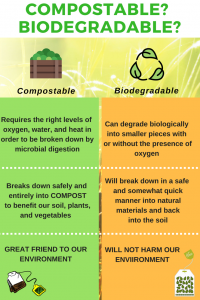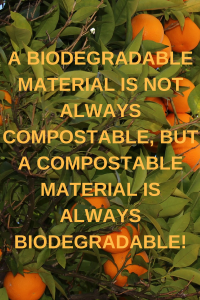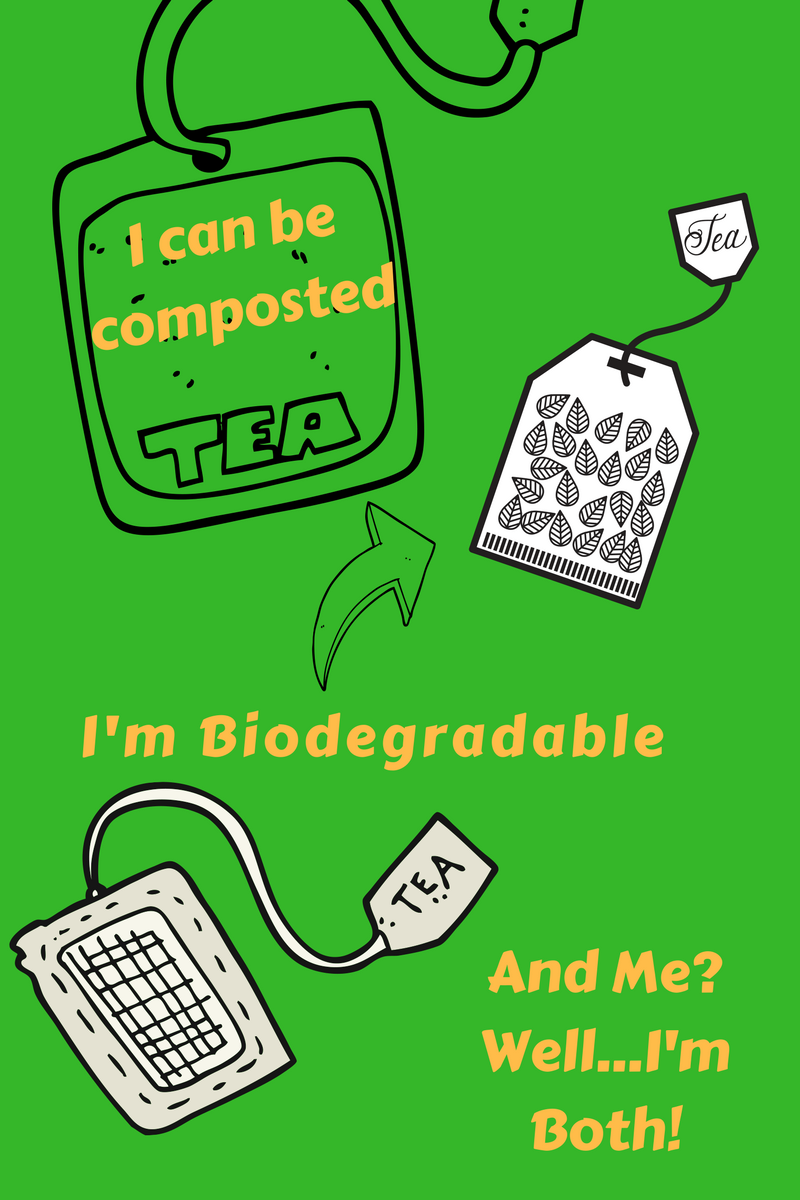What Do You Know About Your Tea Bags?
Are tea bags biodegradable? Are tea bags compostable? Can they be both? You may already be a passionate tea drinker or one just beginning to explore this delicious, and soul-nourishing world. Either way, you need to know the options that you have when choosing which tea bag you will be using.
And I’m not talking about the TEA inside the bag right now. I’m talking about just the actual bag itself.
If it sounds a bit silly to you, I want to assure you right now that it surely isn’t! Just as all teas are not created equal, neither are all tea bags created equal. Okay, So, ARE tea bags biodegradable? ARE tea bags compostable? And what difference does this make?
Go ahead and continue reading or skip to whatever interests you right now…
If you just consider the tremendous amount of tea consumed on a daily basis, and the millions of teabags tossed away after each lovely cup, you’ll agree with me that your choice will make quite a difference! For you and for our planet.
You have to have a basic knowledge of what’s what to make an educated choice. After all, you just don’t know what you don’t know…so find out!
First Things First; What ARE Tea Bags Made Of?
If someone asked you how teabags are currently manufactured and what they are made of, you’d have a hard time answering them because there are so many different brands on the market today.
Even though there has been a significant movement towards providing tea drinkers around the world with high quality biodegradable and compostable tea bags; there is still a good percentage of them that are chlorine-bleached, and others made with plastic components (yup…PLASTIC). Nasty toxins that no one ever wants anywhere near their tea!
So, without going totally off course into the making of unhealthy tea bags, let’s continue talking about the ones that we will all hopefully be purchasing.
Are Tea Bags Biodegradable vs Are Tea Bags Compostable
Compostable and Biodegradable tea bags are not the same things. Just as compostable and biodegradable are not the same things. It’s confusing because so many times, compostable and biodegradable are words that are used interchangeably to sell us so many different kinds of products.
They are both used when talking about the way organic materials are broken down in any given environment, and they are also commonly used to describe something that is friendly to the environment. But there is a difference.
What’s The Difference? This is Biodegradable…

If you check into the actual definition of “biodegradable, you’ll see that it refers to a material that can degrade via a biological anaerobic (absence of oxygen) or aerobic (involving oxygen). This action then produces CO2, H2O, methane, biomass, and mineral salts, depending on the environment’s condition during the process.
An uncomplicated way to understand biodegradable better is this; Biodegradable tells us that an item can break down into smaller parts. Small enough so that microorganisms can digest it. With enough time, all products will eventually biodegrade, some taking longer than others and they can do so with or without oxygen. Some, like plastic, will decompose very, very slowly over a very long period and more than likely may never entirely disappear back into our environment.
And This is Compostable…

Compostable means that (with the right level of oxygen, heat, and water) an item is broken down and digested by millions of little living organisms called microbes. These live and thrive in this environment as they help to break down that item. A product that composts leaves no visible, distinguishable or toxic residue and helps improve and fertilize the soil. Compost is a beautiful thing for our soil, plants, and vegetables!
Just be aware that not all teabags that are compostable are “backyard compostable.” Some are labeled “commercially compostable” because they require higher temperatures than what a backyard compost pile can offer. Some tea bags are made from polylactic acid (PLA) and can only be commercially composted.
A good rule to follow if you intend to be able to toss your used tea bags into your compost pile in the backyard, be sure that it does NOT specify “commercially compostable.”
But since not all of us follow rules, and you may be one who doesn’t, it’s ok to retrieve any visible bag remnants from the compost when you’re ready to use it (the compost, of course). And if you want to hurry the composting process along, tear the tea bags open before throwing them into the compost bin. This is the advice given to us by Lynne Gunn, who is WRAP’s home composting expert.
Tell Me A Little More About “Commercially Compostable”
Our backyard compost bins are a terrific, eco-friendly, and conscientious system to have for ourselves and our environment, but there are instances where it just isn’t going to be enough.
Sometimes, it’s the amount of compostable waste that may be too much for our composting set-up. That alone will require a commercial composting site.
A lot of times it will be that ours just can’t reach the much higher temperatures required for the breakdown of some items. Even to begin decomposing, that temperature has to reach somewhere between 105 and 145 degrees Fahrenheit. That’s pretty darn HOT!
Commercial (also referred to as Industrial) composting sites can handle huge volumes of organic waste under all of the right conditions. They are very large-scale and impressive operations doing all they can to help save our world.
So How About You?
I hope that this has shed a little bit of light for you on the questions: “Are tea bags biodegradable?” and “Are tea bags compostable?” I’m going to go with “Yes, it has!” So the next time you drink your cup of tea…take a good look at either those pre-filled tea bags you purchased or the teabags – fill your own method you use. And make sure that they are both always Eco-Friendly!
Tea Bags-Fill Your Own
I’ve talked about “Tea Bags, Fill Your Own – Portable Tea Infuser Bags” in another post. These are terrific little bags which you fill yourself with loose leaves, herbals, etc. and are disposable, biodegradable, compostable (hopefully that’s what you choose to do) and use only 100% unbleached (chlorine free) paper. Click here to read about those right now.
Take a few minutes and watch this video by Compost King: Paul Sellew, PLEASE.


